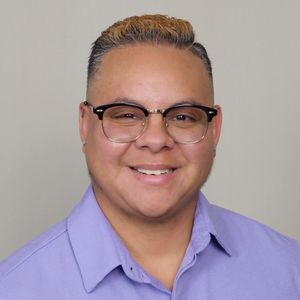What do Occupational Therapists do?
Occupational therapy services for behavioral health include:
- Functional assessments of self-care, cognition, and sensory processing
- Skills training for stress management, emotional regulation, and executive function
- Activity-based group therapy and community reintegration
- Environmental modifications to make home, school, or work more supportive
- Care-coordination with psychiatrists, psychologists, and social workers
American Occupational Therapy Association (AOTA) guidelines recognize OTs as qualified mental-health professionals, case managers, and group facilitators across the lifespan.
Education, certification, and state licensure
Every occupational therapist (OT) or occupational therapy assistant (COTA) working in mental health follows a clear path of education, certification, and licensing. These steps ensure you’re working with someone who meets national standards and stays current in their practice.
The first milestone is an accredited degree. To practice, OTs must complete a master’s or doctoral program accredited by ACOTE (the Accreditation Council for Occupational Therapy Education). This guarantees they’ve had evidence-based coursework in areas like mental health, research, and therapeutic approaches.
Next comes the national certification exam. Therapists must pass the NBCOT exam—the OTR exam for therapists or the COTA exam for assistants—and remain in good standing. To maintain certification, they need ongoing continuing education every three years, which ensures they’re up to date on best practices.
Finally, every OT or COTA needs a state license. All 50 states plus Washington, D.C., require licensure and background checks. Patients can verify a provider’s status through the online board lookup in their state, giving you peace of mind that your clinician is qualified and legally cleared to practice.
Some therapists go even further by pursuing Board Certification in Mental Health (BCMH). This voluntary credential requires three years of experience and at least 3,000 hours in mental health practice. If you see “OTR/L, BCMH” next to someone’s name, it’s a signal that they bring advanced expertise to their mental health work.
Geographic Differences & the OT Compact
Licensure rules come from state law, so practice parameters—such as referral rights or supervision ratios—vary. To simplify cross-state care, 29 states have enacted the Occupational Therapy Licensure Compact. The Compact Commission will begin issuing multi-state privileges later in 2025; until then, your therapist must hold a license where you sit for each session.
In-person, virtual, and telehealth occupational therapy
Demand for virtual occupational therapist visits exploded during the pandemic. Congress and CMS responded by adding OTs to the list of practitioners who can bill Medicare telehealth through December 31 2025, with a proposed permanent rule under review. Commercial insurers typically follow Medicare’s lead, but policies differ by state. cms.govcms.govaota.org
Telehealth occupational therapist sessions can cover:
- Live video coaching on sensory-modulation, mindfulness, or ADL routines
- Guided home or workplace ergonomics walk-throughs
- Digital cognitive-behavioral activity journals
- Caregiver training for youth or older-adult clients
If you prefer on-screen support, search directories filtering for online occupational therapist or telehealth occupational therapist to see who is licensed in your state.
Paying for occupational therapy services in mental health
Like other mental health providers, occupational therapists (OTs) accept a variety of payment options—but coverage details can vary widely depending on your insurance and location. Understanding how each payer works helps you avoid surprises and plan ahead.
With commercial or Marketplace insurance plans, mental health services are generally covered under Mental Health Parity laws, meaning benefits should be on par with your medical coverage. Still, it’s important to check the fine print—copays for therapy sessions may differ from medical visits, some plans impose session caps, and telehealth rates don’t always match in-person coverage. The safest step is to call your member services line or log in to your insurance portal before booking.
For Medicaid, all states reimburse OT services, but billing codes and rates for mental health vary. In some places, you may also need prior authorization—especially if you’re planning to be seen at a community behavioral health clinic. Always ask the clinic upfront whether they accept your state’s Medicaid plan.
With Medicare Part B, occupational therapists can provide both outpatient and telehealth services. Recent rule changes in 2025 have streamlined certification and extended telehealth flexibilities, which makes access easier. Just be sure your OT is enrolled as a Medicare provider, since not all are.
Some clients choose private pay or sliding scale. Standard rates often run between $90 and $180 for a 50-minute session, but many OTs keep a handful of reduced-fee spots available. If you’re going this route, ask for a Good-Faith Estimate so you know your costs before starting treatment.
Tip: If every in-network OT has a waitlist longer than 10 business days, you don’t have to settle. Call your insurer and ask for a network-adequacy override. This allows you to see an out-of-network clinician while paying in-network rates—a little-known option that can save both time and money.
What does a first occupational therapy session look like?
- Intake & occupational profile. You’ll describe daily routines, challenges, and goals.
- Assessment. Standardized tools may measure executive function, mood impact on ADLs, or sensory processing.
- Collaborative plan. Expect concrete, measurable objectives tied to meaningful activities (“prepare dinner three nights a week,” “attend two social events a month”).
- Home program. Many OTs use secure apps for between-session assignments—perfect when working with a virtual occupational therapist across state lines.
Special considerations by state
Because occupational therapy is licensed at the state level, the rules and coverage for mental health services can look very different depending on where you live. Here are a few key areas where state laws may affect your care—and the questions you can ask to get clarity before starting.
Referral requirements vary. In some states, like New York, you need a physician’s order before starting outpatient OT. In others, you can go directly to an occupational therapist without a referral. A good question to ask is: “Do I need a doctor’s script before we start?”
Reimbursement rates are another area where states differ widely. For example, Medicaid in Minnesota pays occupational therapists about 110% of psychologist rates, while in Texas, it’s closer to 70%. This can affect whether a clinic accepts your insurance. To avoid surprises, ask: “Do you take my state Medicaid, and what is the copay?”
Telehealth parity is also state-dependent. In California, telehealth OT must be reimbursed at the same rate as in-person care, but in Florida, payment is negotiable at market rates. If you’re planning virtual visits, a smart question is: “Will my share of cost differ for video visits?”
Finally, there are differences in scope for psychosocial diagnosis. Some states, like Illinois and Massachusetts, explicitly allow occupational therapists to provide mental health evaluations under their OT Acts. A few other states limit diagnosis unless the OT has advanced training. A good way to clarify is to ask: “Can you officially diagnose, or will you coordinate with another provider?”
How Occupational Therapists Differ From Other Mental-Health Providers
Mental health care involves many different professionals, and while their roles often overlap, each brings a unique focus. Understanding how occupational therapists compare to psychologists, counselors, and psychiatrists can help you decide which type of support best fits your needs.
An occupational therapist (OT) has a master’s or doctoral degree in occupational therapy and national certification (OTR/L). Their core focus is helping people restore or enhance the daily activities—called “occupations”—that give life structure and meaning, such as self-care, schoolwork, jobs, and social participation. In mental health, OTs often provide activity-based skills training, sensory-modulation strategies, executive-function coaching, and even environmental modifications at home, school, or work. Progress is usually measured by improvements in functional independence, role competence, and participation in everyday life.
A psychologist (PhD or PsyD) is trained in cognitive, emotional, and behavioral assessment as well as psychotherapy. They provide in-depth approaches like CBT, DBT, psychodynamic therapy, and psychological testing. Their outcomes are measured by changes in symptoms, cognition, and test results.
A licensed professional counselor (LPC) or licensed clinical social worker (LCSW) typically holds a master’s degree. They focus on talk therapy, case management, and connecting people to community resources. Their work often emphasizes building coping skills, improving social functioning, and offering crisis support.
A psychiatrist (MD/DO) or psychiatric nurse practitioner (PMHNP) brings medical training. They specialize in diagnosing mental health conditions and prescribing psychotropic medications, often paired with brief therapy or monitoring. They’re particularly important for managing complex disorders and stabilizing symptoms through medication.
Bottom line: Occupational therapists stand out because they translate mental health goals into practical, everyday action steps—like getting out of bed, managing meals, keeping up with schoolwork, or staying organized at your job. Psychologists and counselors focus more on insight-oriented or skills-based talk therapy, while psychiatrists and nurse practitioners manage the biological side through medication. Many people benefit from a team approach: an OT for functional change, a counselor for emotional support, and a prescriber for medication—all working together around your goals.













